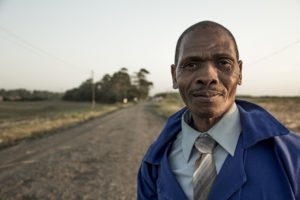It is tricky. How do you love people well, without giving to their financial needs? Our words must not be empty. We don’t want to say “I’ll pray for you,” and do nothing practical to help those in true financial distress. At the same time, if we give in the wrong way, we create unhealthy dependency. This is a death factor in movements and can destroy the chances you will multiply rapidly.
As you reach out to the least, last, and lost, inevitably you will encounter those with desperate needs. These needs are emotional, physical, and spiritual. A disciple maker needs to avoid burn-out by setting boundaries on what they will do for those they minister to. How much do you give? When do you give? How do you give? These are vital questions to answer as you attempt to start Disciple Making Movements among the unreached.
What Did Jesus Do About Financial Distress?
In everything we do as disciple makers, we look first to Jesus as our model. How did He handle desperate need? Our principles on this must be more than good strategy. They need to come from Scripture.
Reading through the gospels, I don’t see Jesus creating huge feeding programs or building hospitals. He didn’t appeal to His home synagogue in Nazareth to finance the feeding of the hungry 5,000.
C. Anderson
I’m not saying those things are wrong to do. We just don’t see Jesus doing ministry that way. A few years back I faced a difficult situation.
Paresh’s Heart
We were working in the slums of India. Each day we went house to house weighing babies, giving nutrition counseling, and meeting lost people. As we went, we shared stories of the Bible with those we met. When people were open, we invited them to hear more and started Discovery Story Groups.
One day in a particular slum, we came across a very sick little boy. His name was Paresh. He was four or five years old. His father was a cycle rickshaw driver who drank a lot. We noticed his emaciated body and skinny legs and arms. “What is wrong?” we asked. From the dark corners of their bamboo shack his mother pulled out a file with soiled x-ray reports.

In India, people keep their own hospital files and records. Very few hospitals maintain files on patients, especially those from poor communities. The reports on the scans and tests were all in English. His parents didn’t speak English and only knew what they’d been told by the doctors. That wasn’t much. They’d been prescribed medicine they couldn’t afford and sent home.
Little Paresh’s situation seemed serious. I offered to go with them to the government hospital to investigate further. At least I could interact with the doctor in English and ask more questions. I’d often played the role of advocate for those in the slums. Since I was of higher status, well-educated, and had more money, they got better care if I accompanied them.
I spent long hours away from my own kids to wait in long lines at the government hospital. I was frustrated. How much time would I need to stand in line so we could see a doctor? I could afford to take them to a private hospital and pay for it or make an appeal to donors to help this little boy. That would save precious time.
If I chose to do that, how long would I need to provide for Paresh? What about all the other kids in the slum who also needed medical care? It was not easy to know what to do.
Trip to Kolkata
Eventually, I took little Paresh and his father to a heart hospital in Kolkata. We did further investigations. He had a heart defect and needed surgery. Appealing to the hospital to discount his bills, we were able to schedule appointments. We prayed and asked God to heal, but no miracle came.
The operation he needed would cost more than a year’s wage for his father. Paresh was an only son. This is a big deal in India. Many parents will sell all they have to save their son’s lives, going into massive debt for medical care. I hated to see them do that.
There were friends in the USA I knew would be willing to pay for the surgery. What would that do to the community? To our image there? Would we now be seen as the “saviors” instead of them seeing Jesus as the One who heals and provides?
Praying For a Miracle
Praying a lot, we chose a middle path. We did raise some funds to help him have more tests. Mostly, we cried out to God for a miracle. We read stories from the Bible with them, those which spoke of God’s healing power.
One day we got a call. “Come quickly,” they said. We rushed to the slum and found little Paresh had breathed his last. Crying with the parents, we wrapped his body in a cloth and carried him to the river. Singing songs to God, we talked to them of the hope we have in Christ. Little Paresh was with Jesus now.
Questions filled my mind. Could we have done more? Should we have done more? Why didn’t God heal him? These are the kinds of situations we face when we choose to make disciples among the poor. There are no easy answers.
Give to everyone who asks you, and if anyone takes what belongs to you, do not demand it back.
Luke 6:30 NIV.
8 Principles For Helping (Or Not Helping) Those in Financial Distress
1. Jesus taught us to give.
We can not make disciples who are generous unless we ourselves practice generosity. Though Jesus taught this, we do not see Him or His disciples giving money to those in need. Peter and John, when asked for alms at the temple gate responded “Silver and gold we don’t have.” (Acts 3).
Was Jesus generous? Indeed, He was. The Master’s generosity, however, was not monetary. He gave His very life.
2. Giving is not only financial.
There are many ways to show love to the poor. One of the greatest gifts we can give is dignity. Giving hand-outs from a place of superiority disempowers the poor. It’s often the solution that seems easiest and least costly. It also takes away our sense of guilt. And, it’s what they seem to want from us. Giving money is often not the best thing to do. Not if you want to help them in a long-term way.
When we give time to help a poor person find a job or learn a trade this requires generosity. If we help them learn how to navigate the difficult maze of getting government help, this empowers them.
3. Point people to Jesus as Savior.
Don’t rescue people. It’s not your job. Love them, serve them and point them to the God who is able to save them. He is the One who saves us not only from our sins but also from our financial burdens. He can do miracles we can not do.
4. Let God carry the burden of the poor.
This burden of taking care of everyone is too heavy for you. It will burn you out. Pray seriously, then give the weight of these needs to God. Trust Him to care for those you love. Believe for miracles. Let God be the One who takes care of them as they look to Him.
5. Discern the difference between relief and development.
There is an important distinction between these two. When a crisis like an earthquake or flood occurs, we need to help people. Often this involves finances if we have it to give. Once the crisis is over, development is needed. Don’t continue in crisis mode or you will quickly create unhealthy dependency.
6. Live simply, and demonstrate dependency on God.
Our lifestyles need to be simple but healthy. If you live a lavish lifestyle, it is difficult to disciple people in financial accountability. Make choices that reflect the Kingdom of God. Just because you have more, doesn’t mean you should buy more. Invest, save, and be responsible when God blesses you. Give sacrificially to God’s work, but avoid using your money in ways that give you control over others. Let your disciples see that you too are trusting God for your financial needs.
7. Pray and believe God for miracles.
Pray often with faith for miracles. God will work! He loves to respond to our faith-filled prayers. As people around you see God work, they too will learn to trust Him for the impossible.
8. Involve the community.
Don’t rob them of a chance to participate in giving. If you are an outsider (which we often are as leaders and missionaries), avoid solving a problem that should be solved by the local community.
Instead, serve as a partner helping them brainstorm options and solutions. If they solve their own issues or assist their own community members, you have taken important steps forward. You are moving toward an indigenous Disciple Making Movement.
Which of the above principles do you currently practice? Which do you need to work on?
Comment below or on the DMMs Frontier Missions Facebook group.



Comments
I loved the principle about involving the community. It’s a principle we often overlook because we see ourselves as rescuers. I have found that the community usually has lots of wisdoms and workable solutions. By involving them we are also allowing them to be a blessing thus empowering them. I need to learn to pray more for God’s solution and not carry the weight upon myself
I understand your point but their some area were i went with my wife.that area there no Jesus no church some people don’t have even the clothes, and then they are willing to hear from my words.
But you can able to see that this people they need to dress they need to eat but I don’t have something to give them ,up to now they use to call me for the prayers.you can find the parents agree to allow the children married each other at age of 10years , why there no one tell them what long or what is light, even the village head man and the king allow that. I love you teaching God bless you, I spent 400$ only to travel to that area
Going and coming back.
Author
It is difficult when you have to spend a lot on travel. Are there local people you could raise up and train so you do not need to travel so far? Or is it possible to move to that area to work? It is best if we can live in the community we wish to impact.
I love living simply and depending on God to solve and provide the needs of all because He knows everything within us. Investing and saving while spending is another helpful area.
Author
Thanks for sharing this Martin.
Good evening brothers and sisters in Christ Jesus,i greet each and everyone in the name of our Lord and savior,I am very gald to be part of this Christ study my name is Patrick sayon and I am prophet hopefully we will work together as one body in Christ Jesus.i live LIBERIA west Africa, I have my ministry. my ministry name is Power of God healing ministry,we are one family already so we have to believe in the Lord and savior also encourage others..God bless you for bringing us together here , may the grace of God continue to be upon you
thank you so much mam this is really true that when some unexpected situations comes we feel to help our poor brothers and sisters who lives in slum area and once you helped somebody they will tell to each community people and after that all slum people will ask you only for financial help no one will hear the gospel so for this what we can do ..
1.avoid to help immediately it will pour wrong expression
2. avoid good dress up
3. don’t take food or any eatable things quickly
4. if there is an any youth leader control your sexual thought towards slum girls or kids
5. don’t be so emotional over there but pray with bottom heart
I am doing slum ministry I can say without God’s help I cannot do Ministry among them
Author
Thanks for sharing your thoughts Rishabh.
Good Job let it be continues all the times .
Yours Bishop Charles muga
Greetings in the mighty name of Jesus!!!!
I am Tulasi Prasad Dulal I am from pokhara Lekhanath-29,Adarshachok ,west Nepal(Asian continent)
I love to every principle1-8 & I had practice every principles different situation different places in moving for the ministry but still need to me practice again if will getting the chances I love to helping peoples ,sharing any kinds of Blessing spiritual & material or time wisdom & experiences if neeeded and in church & community thank you God Bless you for sharing the principles.We still need need prayer and resources so plz.constantly pray for us in our ministry & community thank nyou God Bless you all shalom!!!!!
Author
Great to hear your response Tulasi. May God give you grace as you work to apply these.
These Principles are wonderful, Biblical and simple to apply.
By learning, I studied Urban and Regional Planning. We had a subject in a Course named Sociology in Planning. The subject is similar to Principle 8; it is Titled ‘Citizen Participation in Planning’.
I am more educated here with the 8 principles and hope to apply them more consciously and better than before.
Thanks so much.
That was a very good post. Thanks.
Author
Thanks for the feedback! Blessings.
How are you doing.sorry I like the instruction I would like to hear